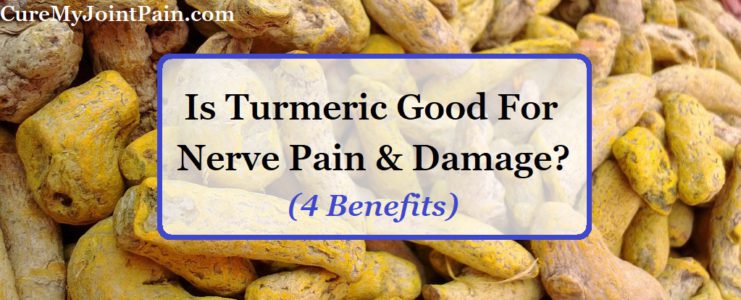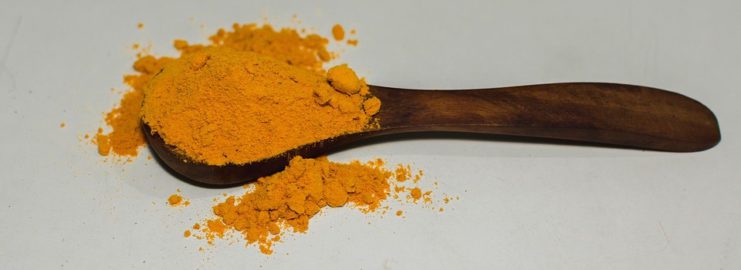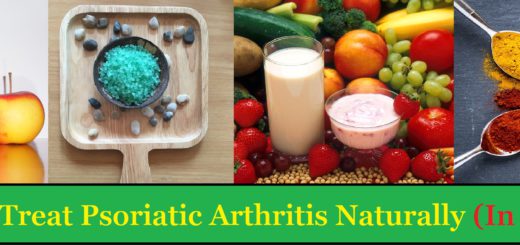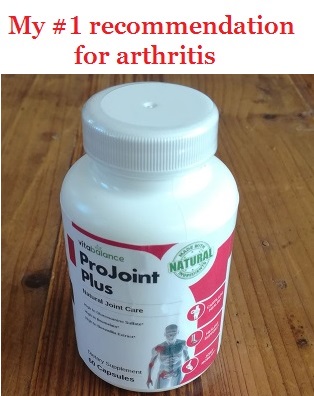Is Turmeric Good For Nerve Pain & Damage? (4 Benefits)

Turmeric is probably the best herb for pain relief. Both science and my own experience can tell that:
- decreases inflammation
- reduces chronic pain
However – is it good enough for neuropathy? It doesn’t respond to regular drugs, so could turmeric help?
Well – according to several studies, it’s one of the best remedies for neuropathy you can try.
For this reason – here are the top 4 benefits of turmeric/curcumin for nerve pain and damage.
Note: The information in this article is based on my research + studies on this topic.
What You Will Find In This Article
I would divide the following lines in 3 chapters:
But first – let’s see what you should expect from turmeric in nerve pain.
#1 – How Can Turmeric Help?
As you probably know, turmeric comes from the root of Curcuma Longa, an Indian plant.
The powder obtained from this plant is called turmeric – while the concentrated extract is called curcumin.
Now – how exactly can this herb relieve nerve problems?
- Really powerful pain killer.
- Decreases most types of chronic pain (on the long term).
- Improves your body’s functions.
- Supports brain and nerve functions.
- Prevents the development of nerve issues.

So basically – turmeric and curcumin have all the qualities to be a great remedy for nerve problems.
The only problem is that they’re not very famous. Otherwise, they would be used a lot more than now.
But now that you know the main things about this herb – let’s see its top benefits for nerve pain and damage.
Benefit #1 – Analgesic
1. Facts: Besides decreasing inflammation, turmeric is also a pain killer.
In fact – it can keep under control most types of pain, including the one caused by nerve damage:
- Blocks the painful signals from getting to the brain. [1]
- Inhibits the genes causing nerve pain. [2]
- Stimulates the receptor responsible for decreasing neuropatic pain (TRPV1). [3]
- Relieves associated inflammation (caused by inflammatory molecules). [4]
- Reduces the use of medication.
Basically – turmeric is probably the best natural remedy for neuropathy (whether your nerves are already damaged or not).
2. Science: There were several studies about turmeric/curcumin and nerve pain. [5]
Most of them had positive results, proving that curcumin can reduce neuropathic pain with up to 66%.
3. Conclusion: Turmeric and curcumin have amazing results in treating nerve pain.
- They’re potent pain relievers.
- But they also change the way your brain perceives the pain.
Basically – they relieve the pain using several mechanisms. In fact, that’s the secret behind their great effect.
Benefit #2 – Protects The Nerves
1. Facts: Curcumin keeps the nerves healthy on the long term, according to recent research.
Here’s what I mean:
- Prevents nerve damage caused by toxic factors.
- Reduces brain inflammation.
- Stimulate the development of nerve cells.
Now – these terms may be hard to understand, but one thing is clear.
Turmeric and curcumin protect the nerves from additional damage and keep them healthy.
2. Science: Things are even more interesting here.
A recent study proved some amazing things about curcumin:
- stimulates nerve regeneration [6]
- effective in repairing damaged nerves
So if you have some serious nerve damage, this herb can help a lot more than you think.
3. Conclusion: Turmeric and curcumin can stimulate nerve cells but also repair damaged ones.
Plus – they have a major protective effect against nerve toxicity.
Benefit #3 – Prevents Secondary Neuropathy
1. Facts: That’s one of the major benefits of turmeric, if you ask me.
Thing is – nerve pain usually appears due to another problem. Here are the top 3 causes:
- Diabetes
- Cancer Treatments (Chemotherapy)
- Alcoholism
Now – what turmeric does is that it protects the nerves and prevents additional damage.
Considering that neuropathy is really common in people with diabetes or chemotherapy – using this herb would really keep your safe from it.
2. Studies: There were many studies conducted on turmeric – and the results were very similar:
- Protects the nerves against high levels of glucose (in diabetes). [7]
- Decreases diabetes complications.
- Reduces side effects of chemotherapy. [8]
- Decreases DNA damage caused by alcohol consumption.

Basically – there are so many proofs that turmeric and curcumin can prevent neuropathy.
So if you suffer from diabetes or going through chemotherapy, adding this herb to your diet is a must.
3. Conclusion: Turmeric can prevent the side effects of cancer treatments and the complications of diabetes or alcoholism.
There are many clinical trials and studies – so it’s a real fact, not a myth.
Benefit #4 – Antioxidant
1. Facts: Turmeric is a strong antioxidant – nothing new.
But how exactly does this help neuropathy? Here’s the thing:
- Free radicals increase nerve damage (on the long term).
- They also stimulate chronic pain and inflammation.
- Turmeric fights off free radicals and oxidative stress.
- It also prevents aging and nerve damage due to this cause.
Now – oxidative stress will never cause neuropathy alone. But it can surely worsen an existing one.
For this reason, turmeric can also protect you at this chapter.
2. Studies: You can find a lot of research on turmeric’s antioxidant proprieties.
Most studies I found were focused on its neuroprotective effects. [9]
But even so – scientists agree that antioxidants are really beneficial for neuropathy.
3. Conclusion: Curcumin and turmeric are strong antioxidants.
In this way – they can fight oxidative stress and protect the nerves against additional damage.
#3 – What To Associate Turmeric With
Let’s say you’re suffering of neuropathy and you decided to try turmeric.
Excellent choice – but now the question is:
- Should you take it alone?
- Does it work better with other herbs/supplements?
- What’s the best thing to associate it with?
Well, let me show you which are the top 3 substances that work great for neuropathy (besides turmeric).
1. Vitamin B
It’s one of the best natural remedies for nerve pain:
- supports a healthy nervous system
- prevents cellular damage
- reduces pain and inflammation
- might stimulate nerve repair
- a deficiency causes serious nerve pain
So at this point – vitamin B is a must-use product if you’re dealing with neuropathy.
However, pay attention to the dose your taking. A too high dose can have the opposite effects on your health.
2. Alpha Lipoic Acid
This substance is really useful if your nerve pain is a side effect (of diabetes or chemotherapy):
- improves nerve functions
- decreases glucose levels (important in diabetes)
- relieves burning and sharp pain
Also – it seems to help symptoms as numbness or tingling, which are very common in neuropathy.
3. Acetyl L-Carnitine
Here’s another powerful antioxidant – but that’s not all.
Studies say that this substance can also help nerve pain (especially the one caused by chemotherapy). [10]
But that’s not all – it has some other benefits:
- promotes nerve health
- reduces neuropathic pain on the long term
Plus – it’s a great source of energy, as many people who work out use it as an energy booster.
My Verdict – Is Turmeric/Curcumin Good For Nerve Pain?
Short answer: Definitely. In fact – at this point, it’s one of my top recommendations:
- Decreases nerve pain and inflammation.
- Stimulates nerve regeneration.
- Reduces the need of painkilling medication.
- Fights oxidative stress.
- Prevents future neuropathy.
- Protects against diabetes or chemotherapy nerve pain.
Obviously – turmeric won’t make miracles overnight, but it can help tremendously after several months.
Plus – if you associate it with other substances, the results should be even better:
- vitamin B
- alpha lipoic acid
- l-carnitine
Besides, turmeric supplements can be really cheap – compared to other pain relieving products.
So I really advise you to give them a try – since there’s nothing to lose, but a lot to gain.
1 – https://www.ncbi.nlm.nih.gov/pubmed/21945716
2 – https://www.ncbi.nlm.nih.gov/pmc/articles/PMC3946321/
3 – https://www.ncbi.nlm.nih.gov/pubmed/23719767
4 – https://www.ncbi.nlm.nih.gov/pubmed/25031810
5 – https://www.ncbi.nlm.nih.gov/pubmed/23861596
6 – https://www.ncbi.nlm.nih.gov/pubmed/23669643
7 – https://onlinelibrary.wiley.com/doi/abs/10.1002/ptr.2070
8 – https://www.ncbi.nlm.nih.gov/pubmed/23775598
9 – https://www.ncbi.nlm.nih.gov/pmc/articles/PMC2527619/
10 – https://www.spandidos-publications.com/10.3892/etm.2016.3871



